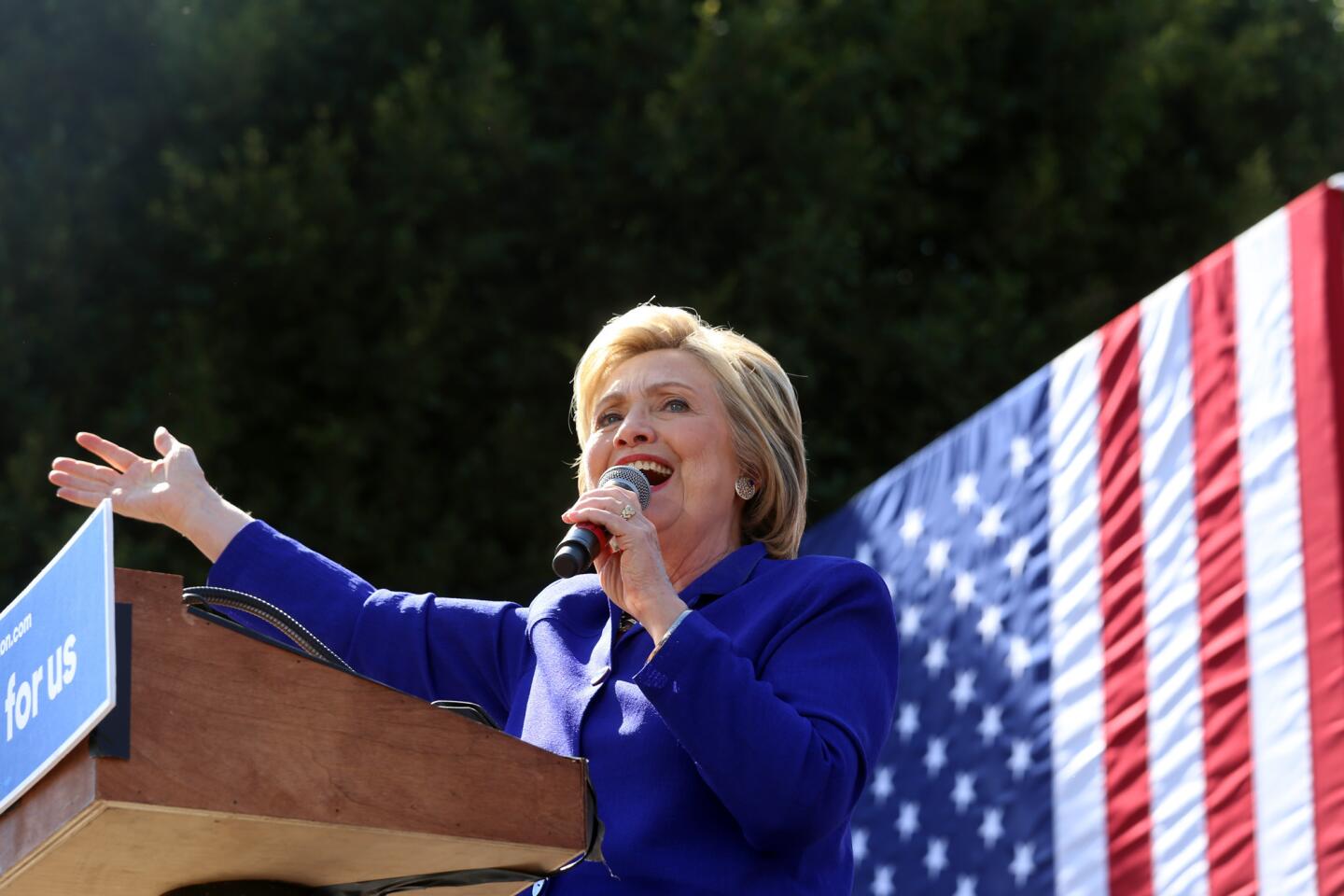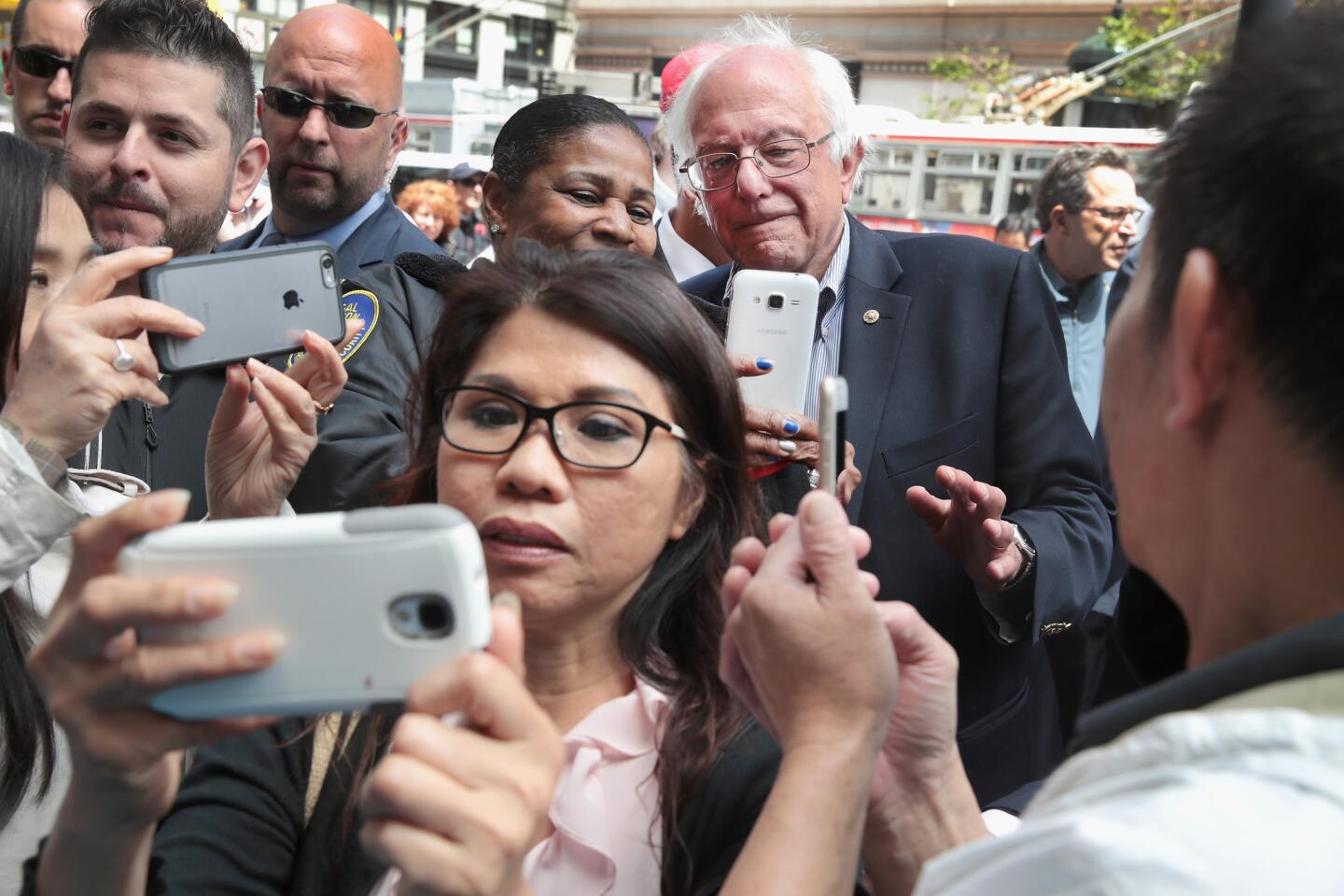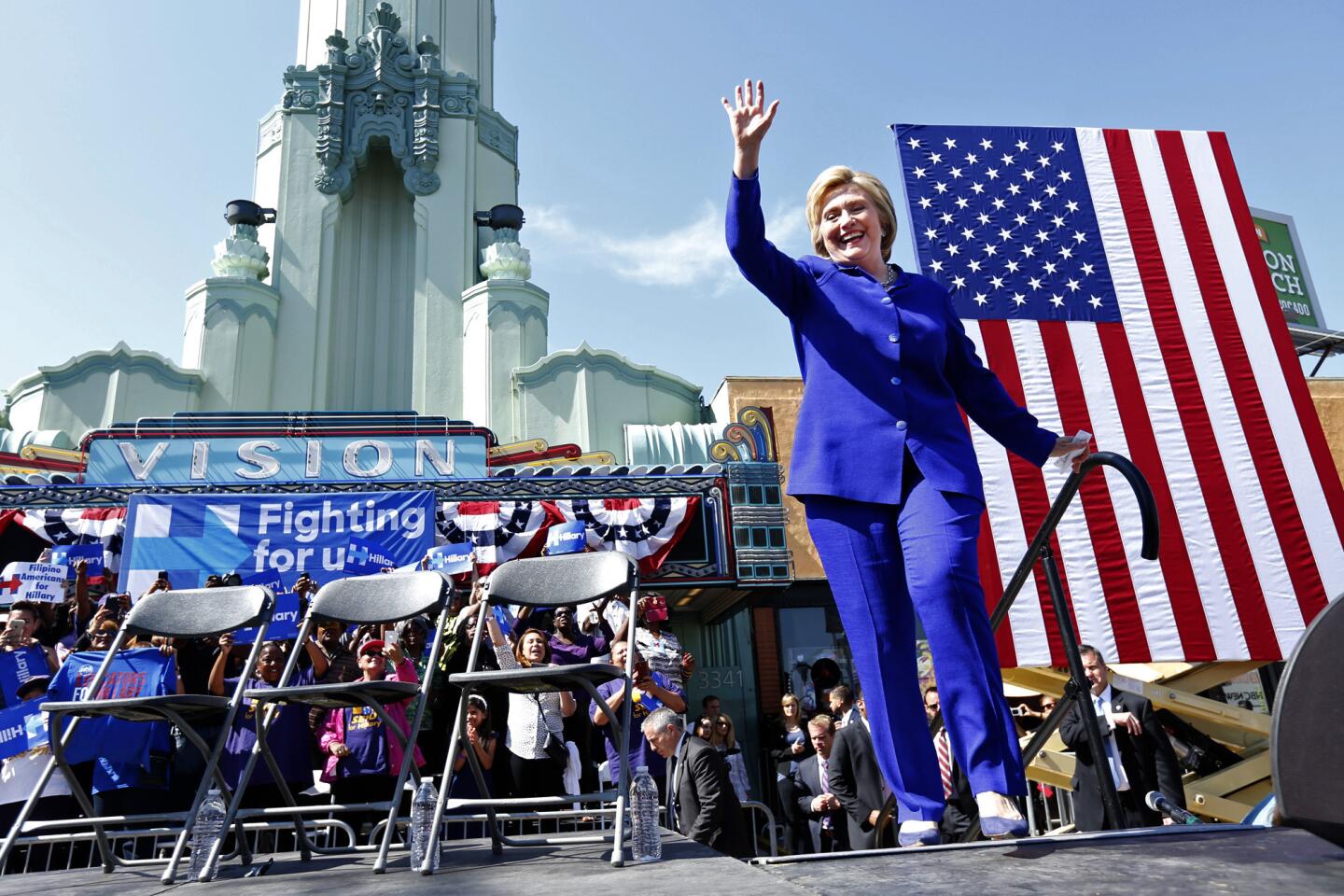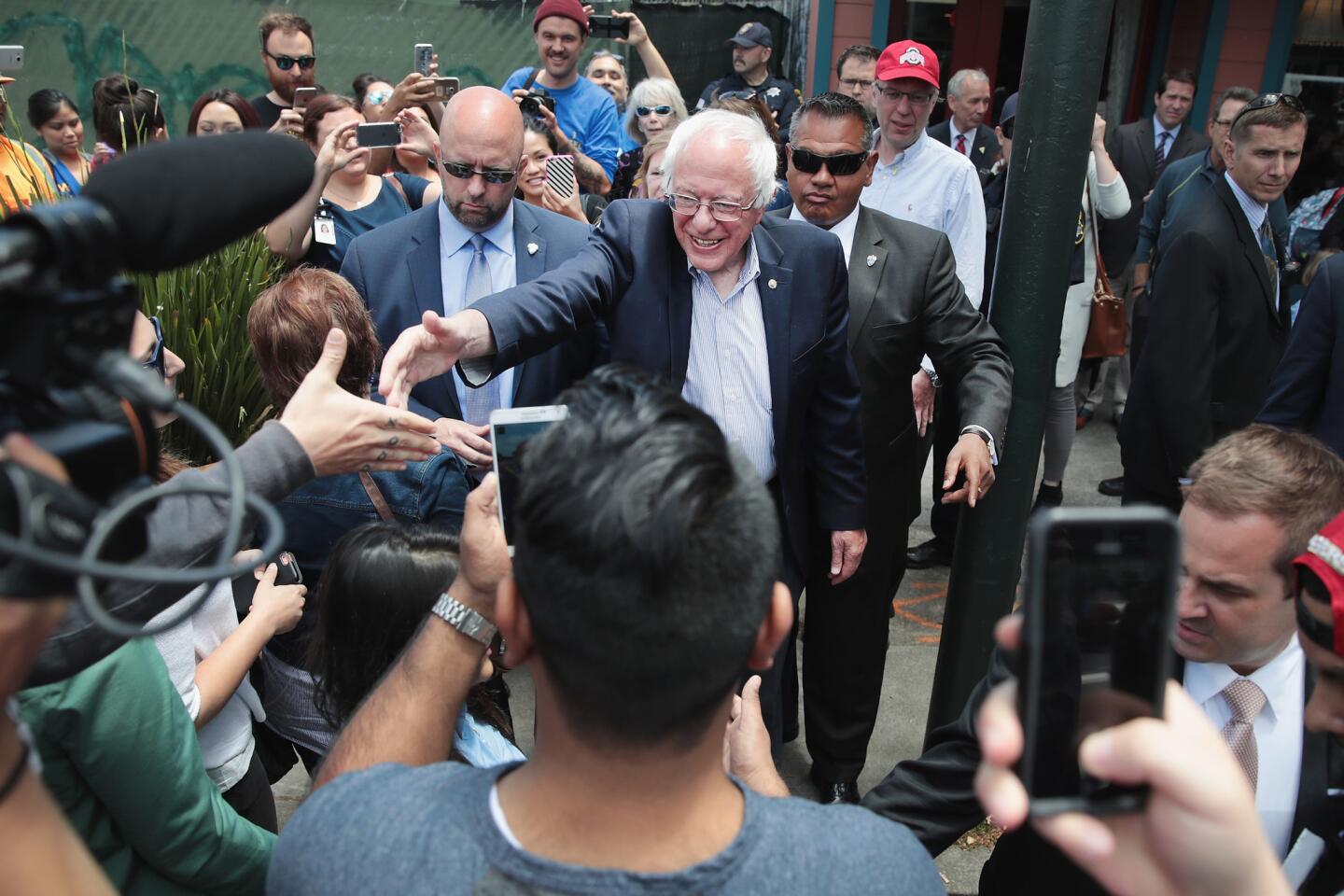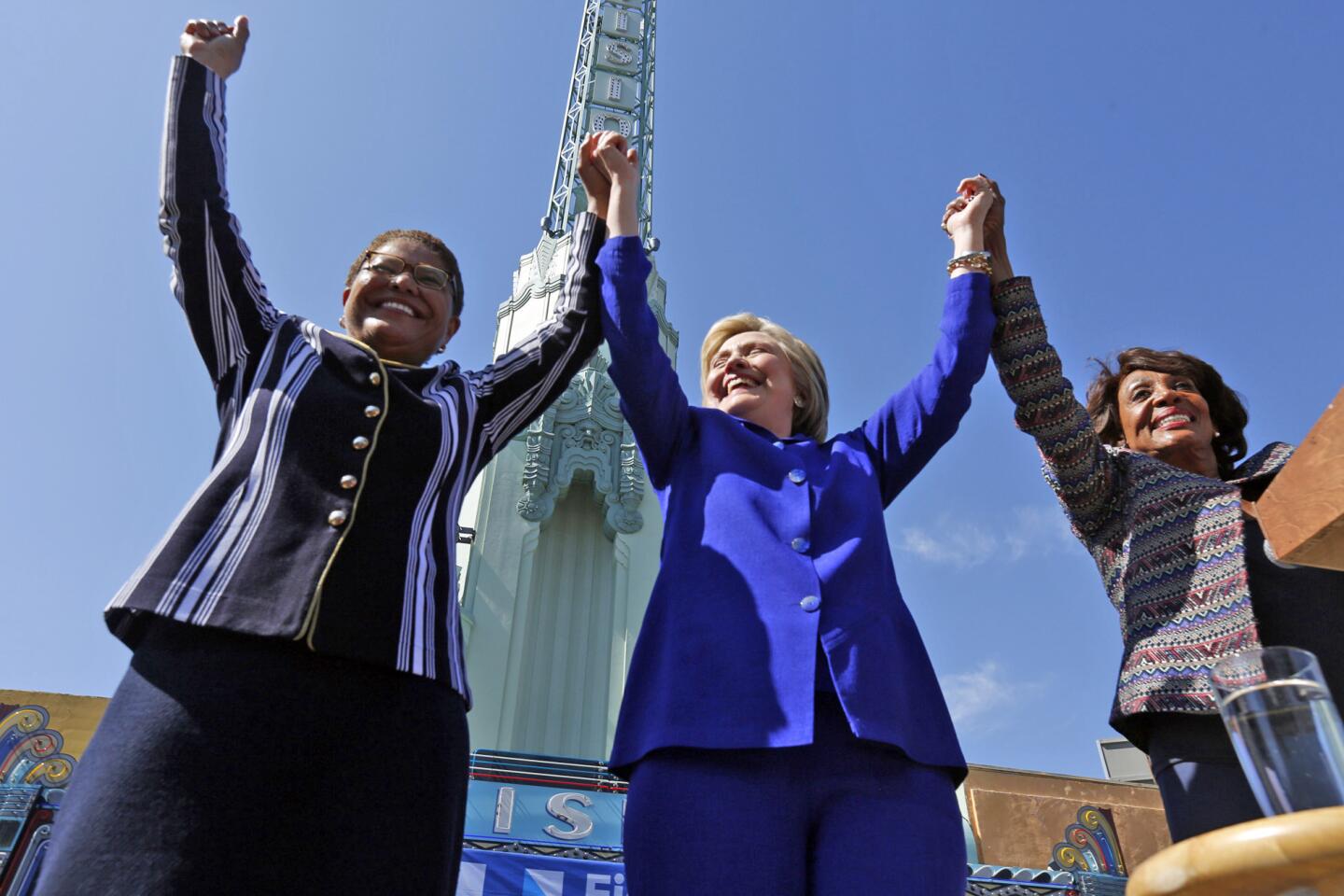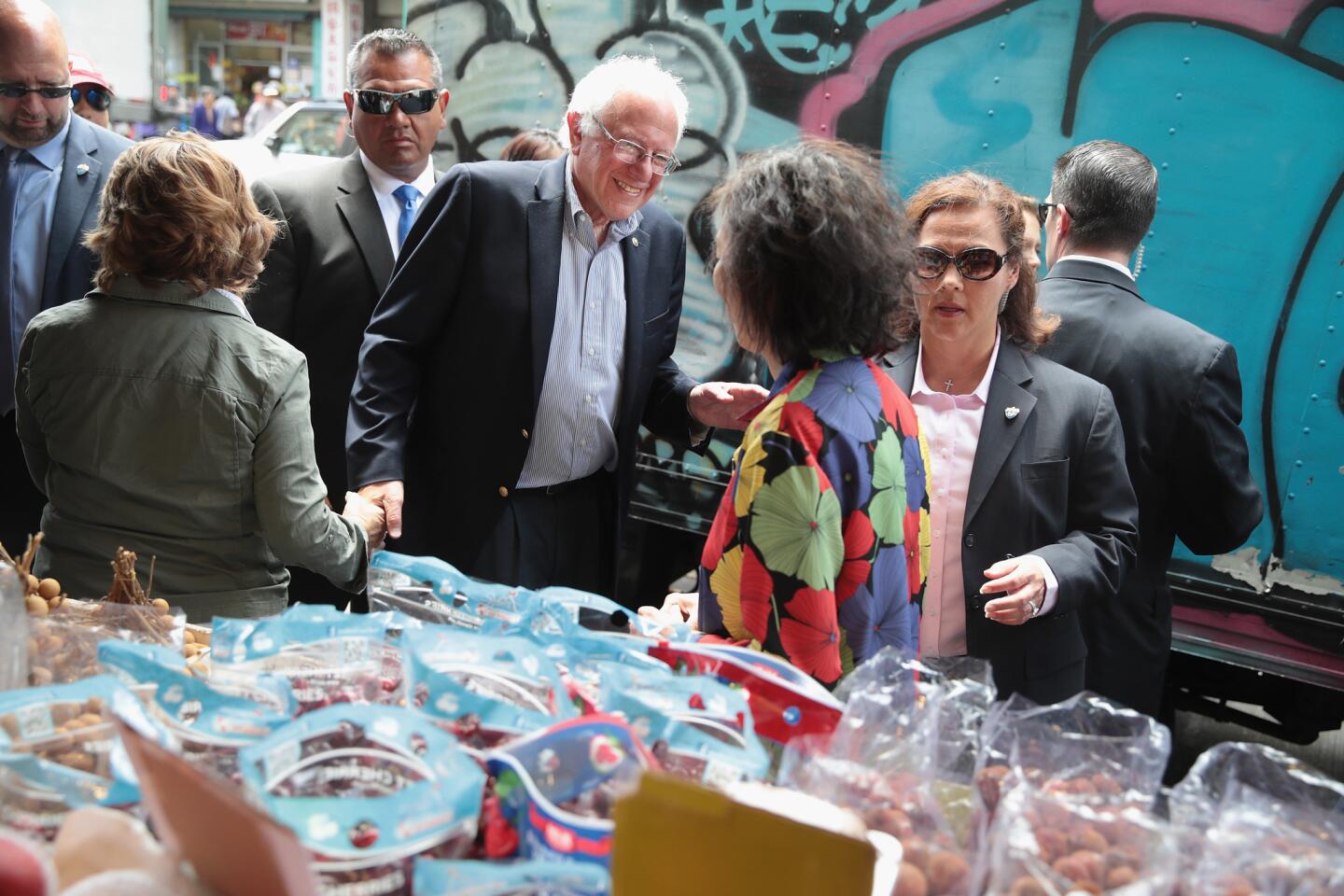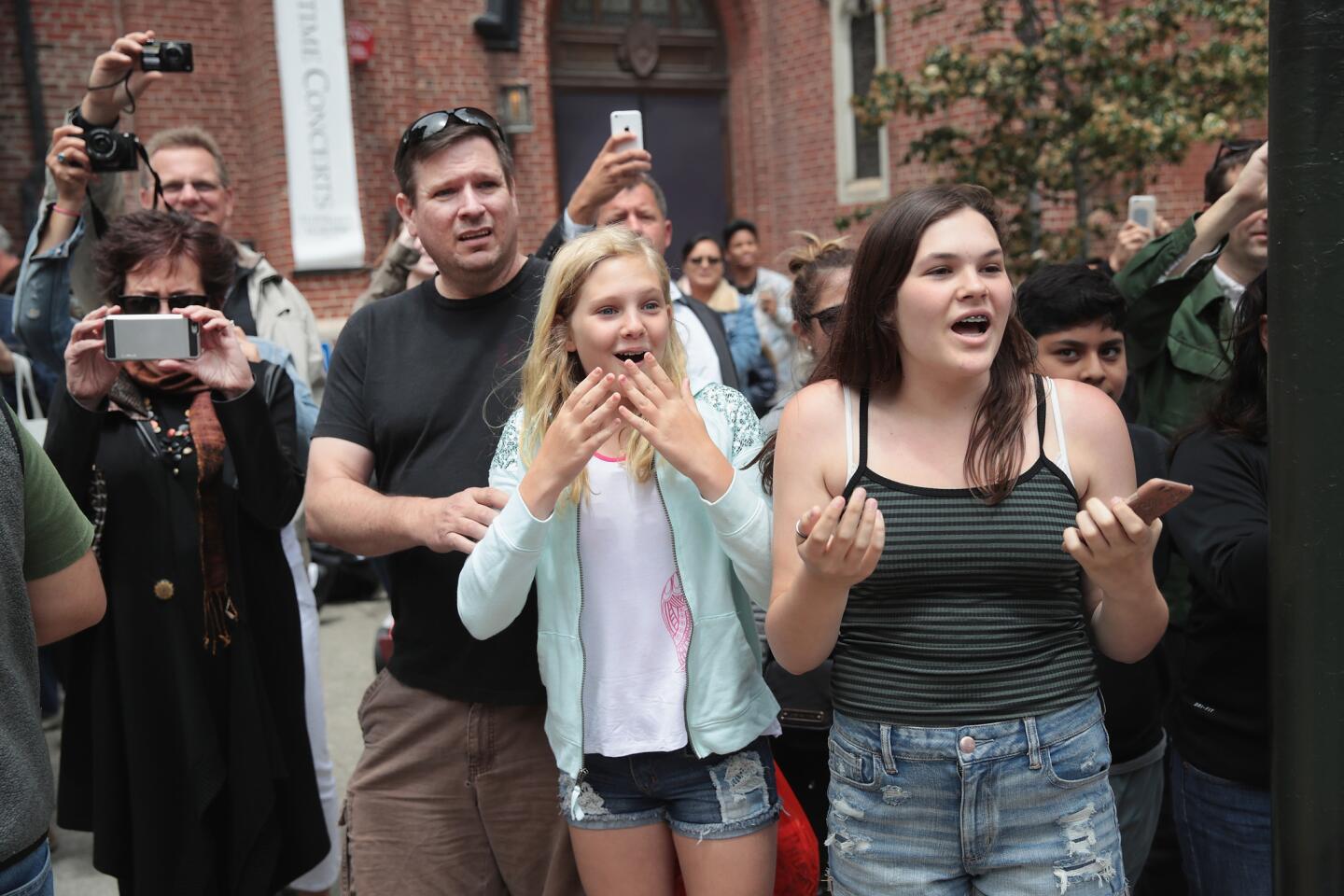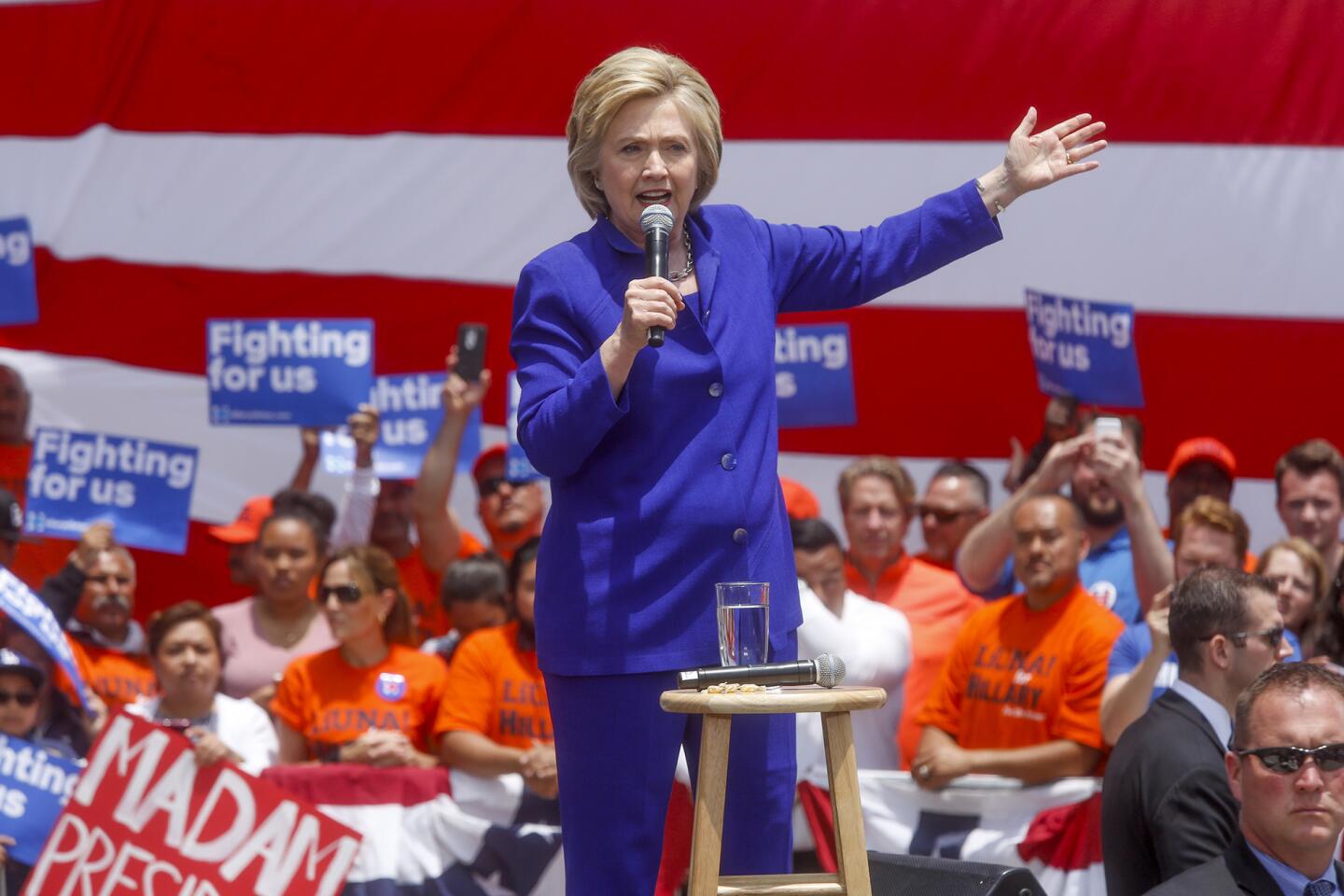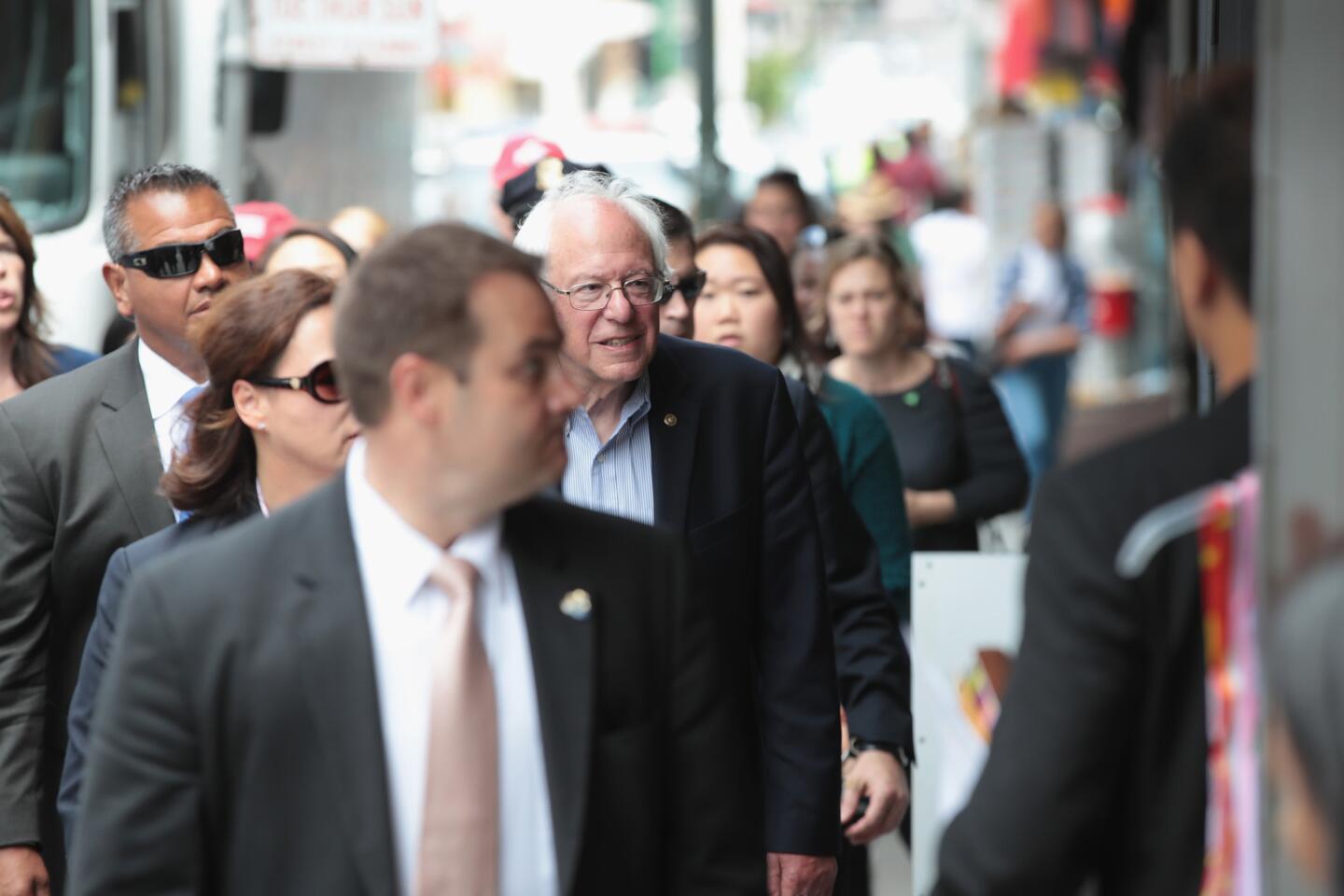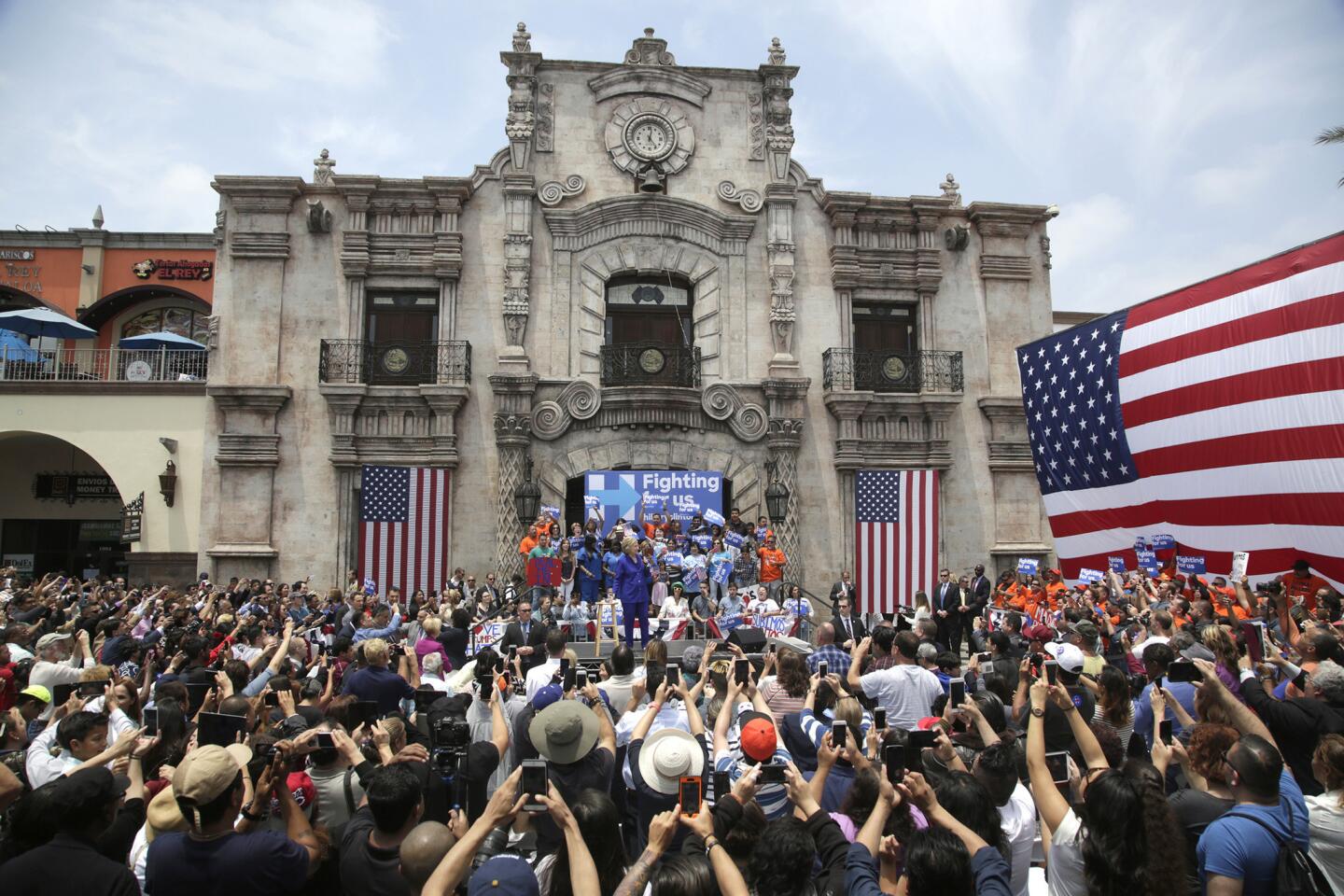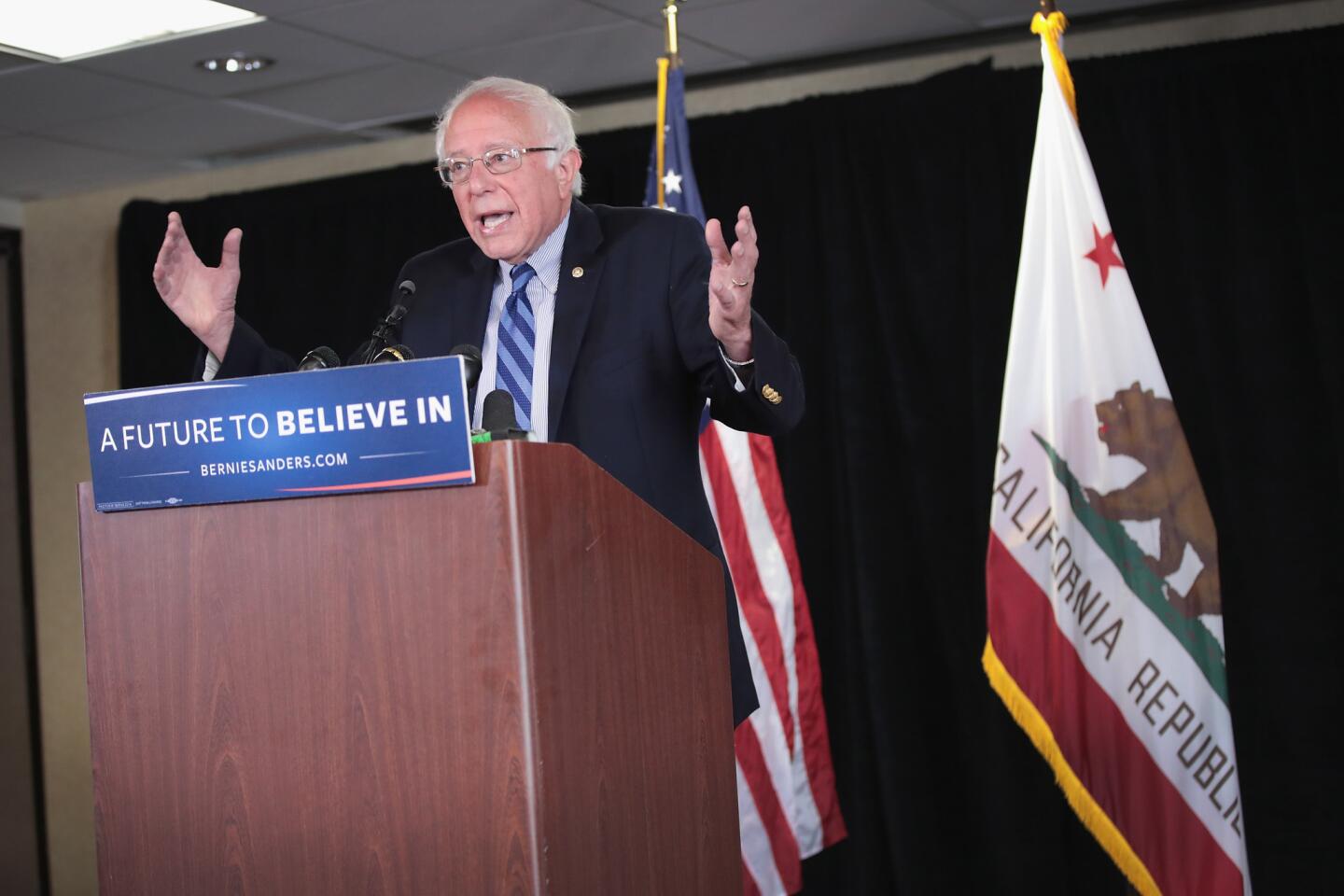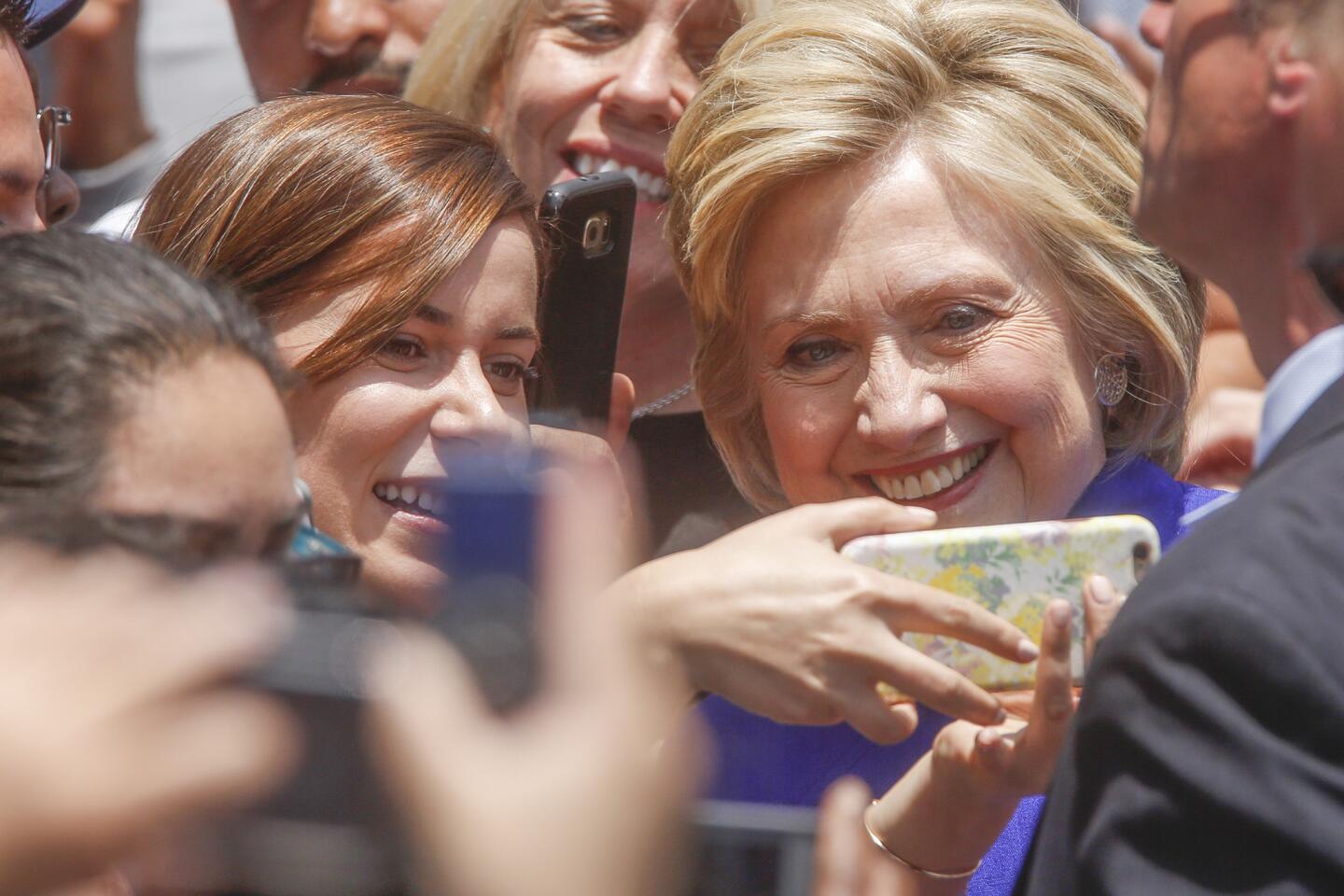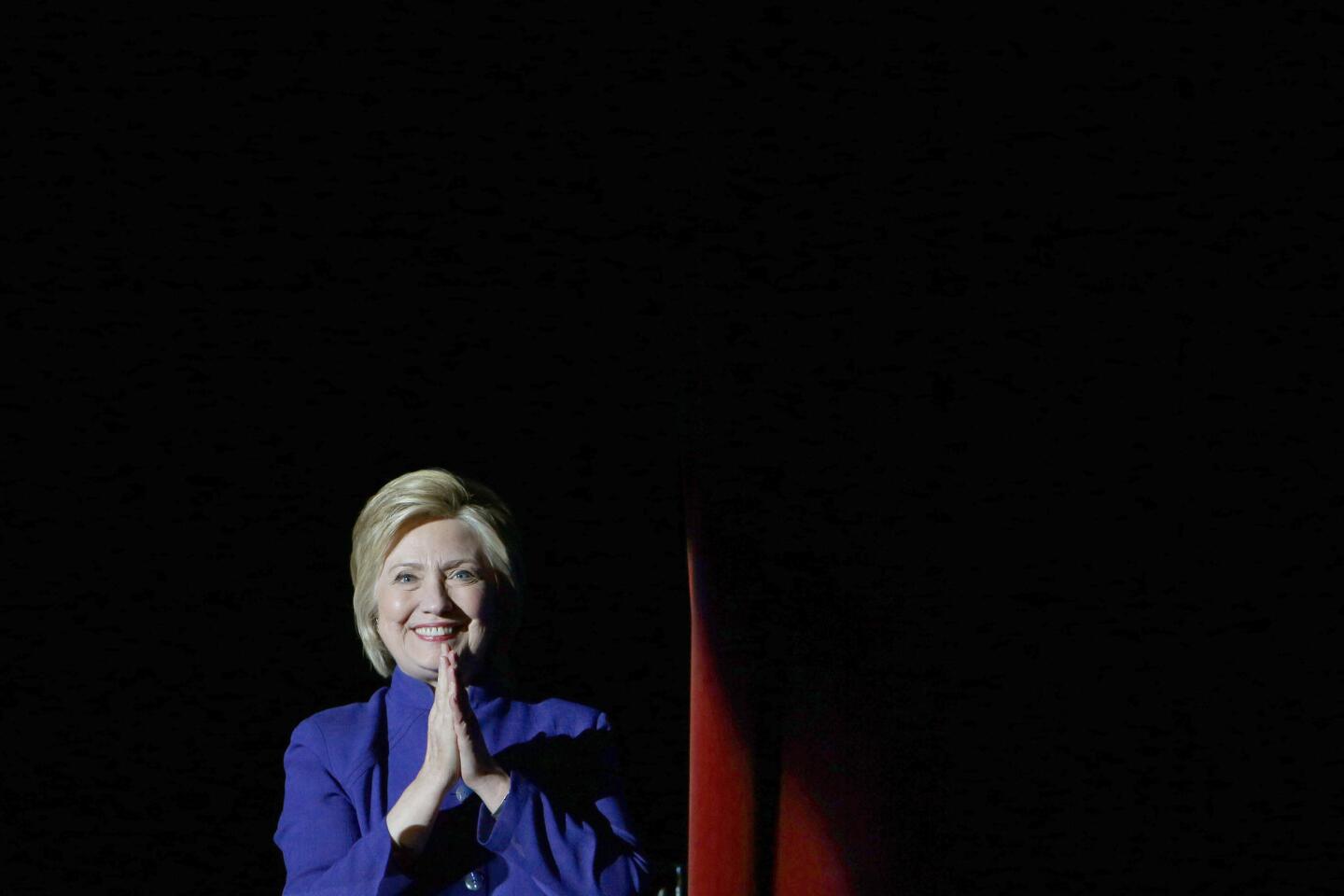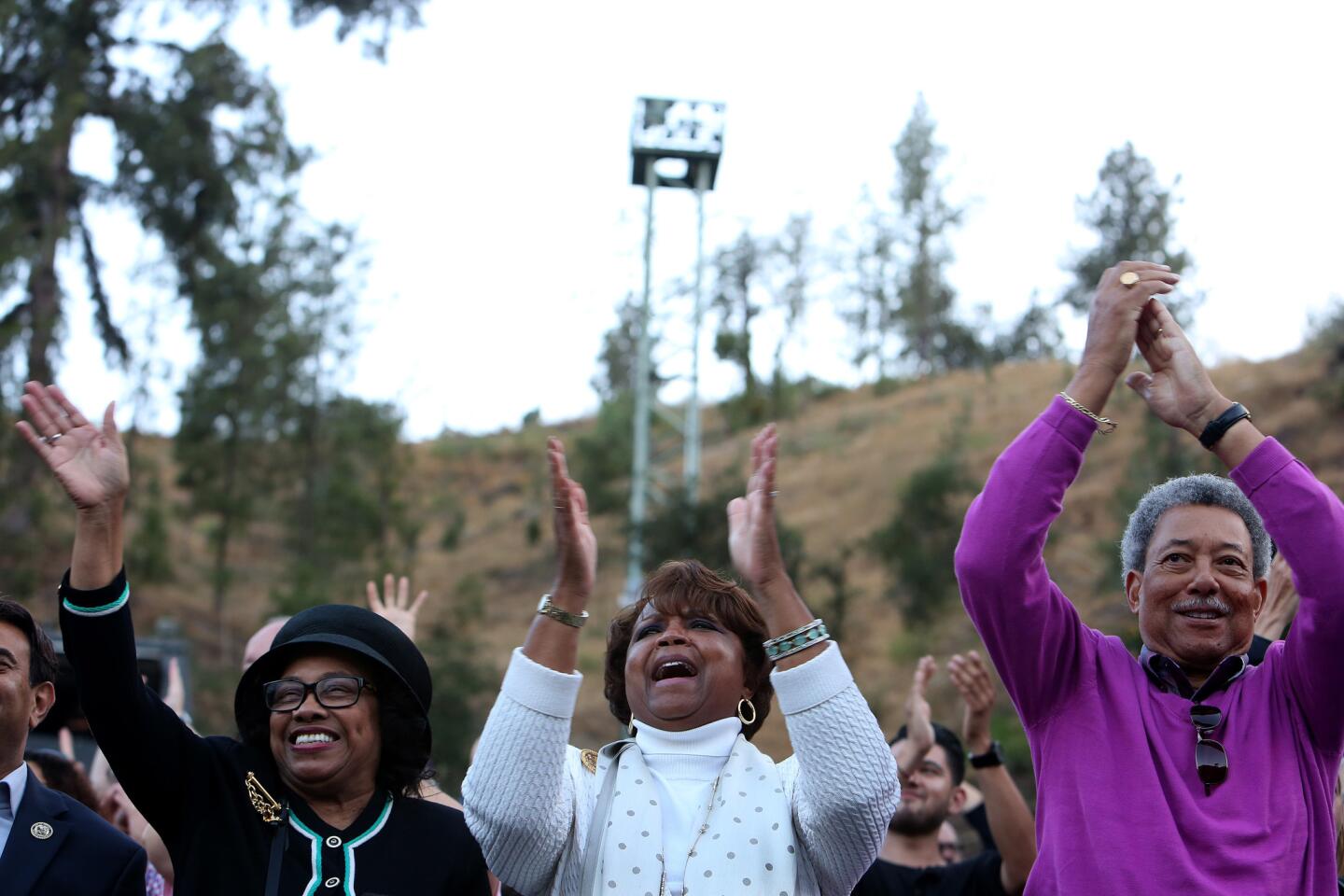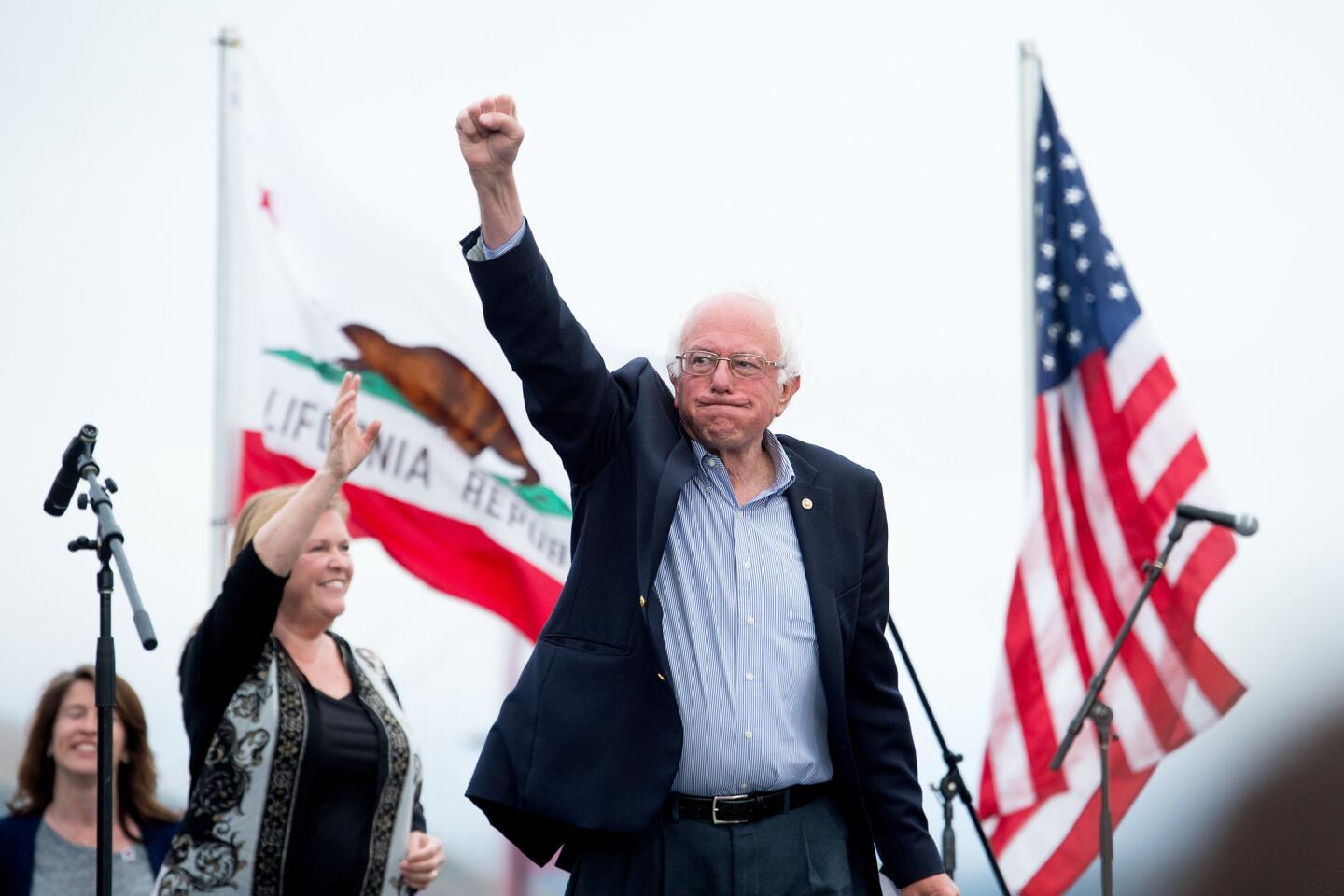Analysis:: Clinton and Sanders are a study in contrasts on the final weekend of campaigning
- Share via
The most raucous and extended California primary battle in decades comes to a close Tuesday with two Democrats demonstrating both a threatening schism in their party and wildly different styles from which voters will choose.
Bernie Sanders gallivanted around California like a tourist on a weeks-long trip, sampling In-N-Out, popping into a neighborhood in Echo Park – albeit with a Golden State Warriors cap on his head in defiance of local preference – and strolling on the Santa Monica Pier.
He staged the big rallies that have been the hallmark of his insurgent candidacy, but also adopted an increasingly caustic tone as he fought against predictions of his imminent demise.
Hillary Clinton blitzed the state much as Sanders did, but as if California represented not the land of 475 delegates but a sought-after graduate policy seminar. At cafes in Santa Ana and Santa Barbara and Vallejo, she took part in earnest discussions with residents on a disparate number of topics.
But she also found footing that had eluded her so far in the campaign as she honed a general-election attack against Donald Trump that drew such enthusiasm from her supporters that even Clinton seemed surprised.
The stylistic contrast between the two was acute Sunday, the end of the last weekend of intense primary season campaigning. As Sanders ate lunch and shook hands with shoppers in the Plaza Mexico mall in Lynwood, Clinton was in the Bay Area town of Vallejo, midway through a detailed discussion of its social and economic woes and, with community leaders, pondering solutions.
For all intents, the primary season comes to an end Tuesday with voting in six states from California to New Jersey. Sanders pledged anew Saturday to take his fight to a contested convention in Philadelphia. Still, the California campaign seemed a visible pivot to what looms as a hugely divisive November election.
Clinton’s pitch in the state has mixed an outsize proclamation of optimism with condemnation of Trump, particularly since her Thursday speech in San Diego that, while ostensibly about foreign policy, gave her the platform to assert that he is unfit for the presidency.
America’s best years are ahead of us. I am confident. I am optimistic.
— Hillary Clinton, in Westminster on Friday
The optimism pitch has worked to set up a contrast with Sanders and his indictments of a “corrupt” campaign finance system and a “rigged” economy – but even more with Trump, whose entire campaign is premised on the notion that the country needs to go back to a time when America was great – because it isn’t now.
“America’s best years are ahead of us,” she said Friday in Westminster. “I am confident. I am optimistic. I am not one of these people running for president who spends all of his time downgrading America. I believe we have problems – what country doesn’t? – but we already are great.”
Hours later, inside a brick-walled cafe in Santa Ana where one community leader declared, “I’m totally in love with you!,” Clinton made the point again.
“You could not have two more different visions, views, values about how to make our country confident, optimistic, embracing,” she said.
If she has almost ignored Sanders in California, Clinton has grown increasingly combative with Trump. And that has boosted her confidence and that of her supporters. Since her anti-Trump speech debuted, any reference to it by Clinton has drawn sustained applause from her supporters.
“I appreciate your paying attention,” she said in Westminster, visibly taken aback. On Sunday evening in Sacramento, she returned to her criticism. “Donald Trump is not qualified or temperamentally fit to be president and commander in chief,” she said.
In California, Clinton has stuck with the campaigning style that made her the Democratic front-runner. Her campaign prefers – and Clinton herself is best at – smaller rallies with enthusiastic supporters and coffee-shop gatherings at which she can show off a depth of knowledge about issues that no other candidate can match. The settings also underscore her ideological positioning as the most mainstream of the Democratic candidates.
Over the weekend, she talked with small groups about community colleges, business loans, gang interdiction, the expense of setting up small-business corporations, immigration, child care, family leave, apprenticeship programs, student loans, interest rates, the pull and tug between kids and work, and the need to read and talk to children from birth, among many other things.
“I have a passion about how we get our littlest kids off to the best start,” she told churchgoers in Oakland on Sunday, where she highlighted the effect on developing brains of reading, talking and singing. “For some people that doesn’t sound like an issue that a president should be focused on. But I’ll tell you what, that’s what I’m focused on.”
One of the main criticisms of Clinton is that she lacks authenticity or genuineness, but in those wonky detours she seems relaxed, engaged and far more approachable than when she is behind a lectern. The conversations also give her a chance to be seen listening, a subtle contrast with the other candidates, and to point out her nitty-gritty view of the presidency.
“I happen to know how hard this job is,” she said in Oakland. “I wish it was just about making speeches. We could all just get up there and promise the moon and make all these rhetorical flourishes. That’d be a lot easier.”
The man making speeches, of course, is Sanders. He closed his California campaign with the well-attended rallies and momentum events that have marked his surprisingly successful effort at a political revolution. On Saturday night, more than 13,000 people showed up outside the Los Angeles Memorial Coliseum to cheer him on.
On Sunday, he hopscotched across Southern California, appearing at a farmers market, walking in West Hollywood and riding the Santa Monica Pier merry-go-round.
If there is a spontaneous effervescence to some of Sanders’ campaigning, there is a chaotic element as well. And it remains to be seen whether his activities attract the votes of Californians – which is, of course, the bottom line.
Unlike Clinton’s campaign, Sanders’ effort in California has been marked by very little in the way of specifics related to the state. Apart from a few subtle references, he has stuck with the same themes and wording he has used all across the country.
At the end of the nominating process, no candidate will have enough pledged delegates to call the campaign a victory.
— Sanders, at a Saturday news conference in Los Angeles
The economy, he says, is “rigged,” and the nation’s campaign finance system is “corrupt.” He favors free college tuition, a hike in the minimum wage to $15 an hour, a Medicare-for-all healthcare system and a sharp change in the nation’s environmental policies to lessen climate change.
Policy details, such as the fact that states would have to supply some of the money for his tuition plan, go unmentioned.
Sanders’ criticisms of Clinton have ebbed and returned throughout the California campaign as he has fought two parallel battles. One is for the victory in California on Tuesday, and the other for the nomination. His odds for the first are uncertain and his odds for the second are dim.
As time has run down, Sanders has become more overtly angry about what he sees as a too-hasty crowning of Clinton – even though she is expected to corral the majority of delegates needed for the nomination by the time polls close in New Jersey on Tuesday.
“At the end of the nominating process, no candidate will have enough pledged delegates to call the campaign a victory,” Sanders said at a Saturday news conference in Los Angeles.
He angrily warned news organizations not to declare Clinton the winner on Tuesday, when she could win the majority of all delegates. That is because he opposes her reliance on superdelegates, the party leaders who have largely flocked to Clinton.
On Saturday, as he has before, Sanders pledged to fight all the way to the July convention in hopes of somehow pulling hundreds of superdelegates to his side. “In other words,” he said, “the Democratic National Convention will be a contested convention.”
Still, Sanders acknowledged his effort to wrest the nomination from Clinton is a long shot.
“Whether I like it or not, those are the rules,” he said of the process he’s fighting.
If the long odds worked their way into Sanders’ language over the weekend, assertions of pending victory have increasingly made their way into Clinton’s.
She has radiated confidence. She was loose enough Friday in West Los Angeles to crack that, given the decades in which she has been involved in policymaking, “I’m like an archaeological dig” when it comes to her record on women’s rights.
She was surrounded that day by a bevy of Hollywood stars and old friends, and the audience was mostly women – the kind of crowd that often draws the best speeches out of Clinton. Even then, at the start of the long, last weekend of primary season campaigning, she sounded as if she was counting the minutes.
“If all goes well, I will have the great honor as of Tuesday to be the Democratic nominee,” she said, and her supporters roared.
Twitter: @cathleendecker. For more on politics, go to latimes.com/decker and subscribe to the free daily newsletter.
ALSO:
Updates on California politics
Live coverage from the campaign trail
Bill Clinton shouted down by Bernie Sanders supporters in Boyle Heights
Hillary Clinton and Donald Trump take shots at each other on Sunday shows
Donald Trump’s attack on judge and other racial comments stir trouble for the Republican Party
More to Read
Get the L.A. Times Politics newsletter
Deeply reported insights into legislation, politics and policy from Sacramento, Washington and beyond. In your inbox twice per week.
You may occasionally receive promotional content from the Los Angeles Times.
